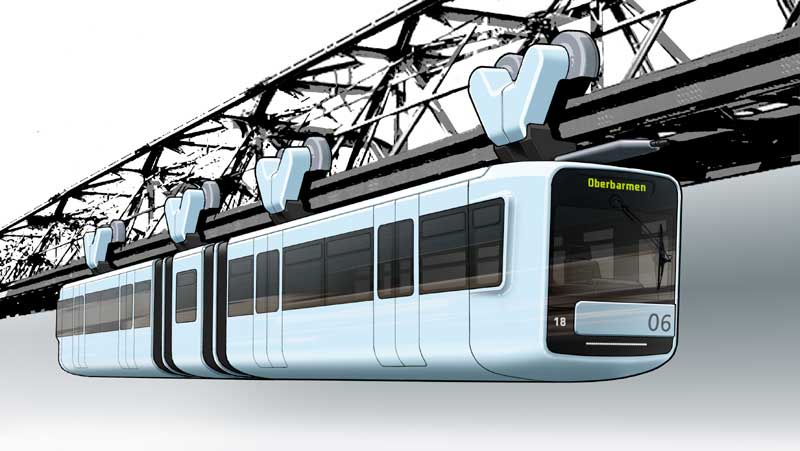
Suspension monorail (Schwebebahn) audioguide
Transcript
Back to episode00:00:00: “A strangely murky working-class town with thousands of smokestacks …”
00:00:00: … is how the famous poet Else Lasker-Schüler described her native town in the drama entitled “The Wupper”. Her drastic depiction of real life at the beginning of the industrial era is by no means exaggerated.
00:00:20: Not only was Wuppertal a grey and sooty valley in the 19th century. Great poverty also prevailed amongst the working classes. The “Elberfeld System” introduced in 1853 brought a glimmer of hope.
00:00:35: This public welfare model, built on the work of volunteers, set a precedent for welfare plans throughout Germany. Thanks to many volonteers a lot is still possible in the valley today.
00:00:47: Without these committed citizens, neither the Nordbahntrasse, a bike and hiking trail, which crosses the city from east to west on a former railroad while providing beautiful views, nor the cultural and community centre Utopiastadt, which is located in an old railway station next to the former old train track would exist today.
00:01:07: In the past the Arrenberg, directly below us, was another dismal place for a long time. Today, as a largely climate-neutral quarter, it is an example of how the old scars of industrialisation are healing.
00:01:24: However, Else would surely find other words today to describe the modern living next to each other in a co-working-space on the Elba property...